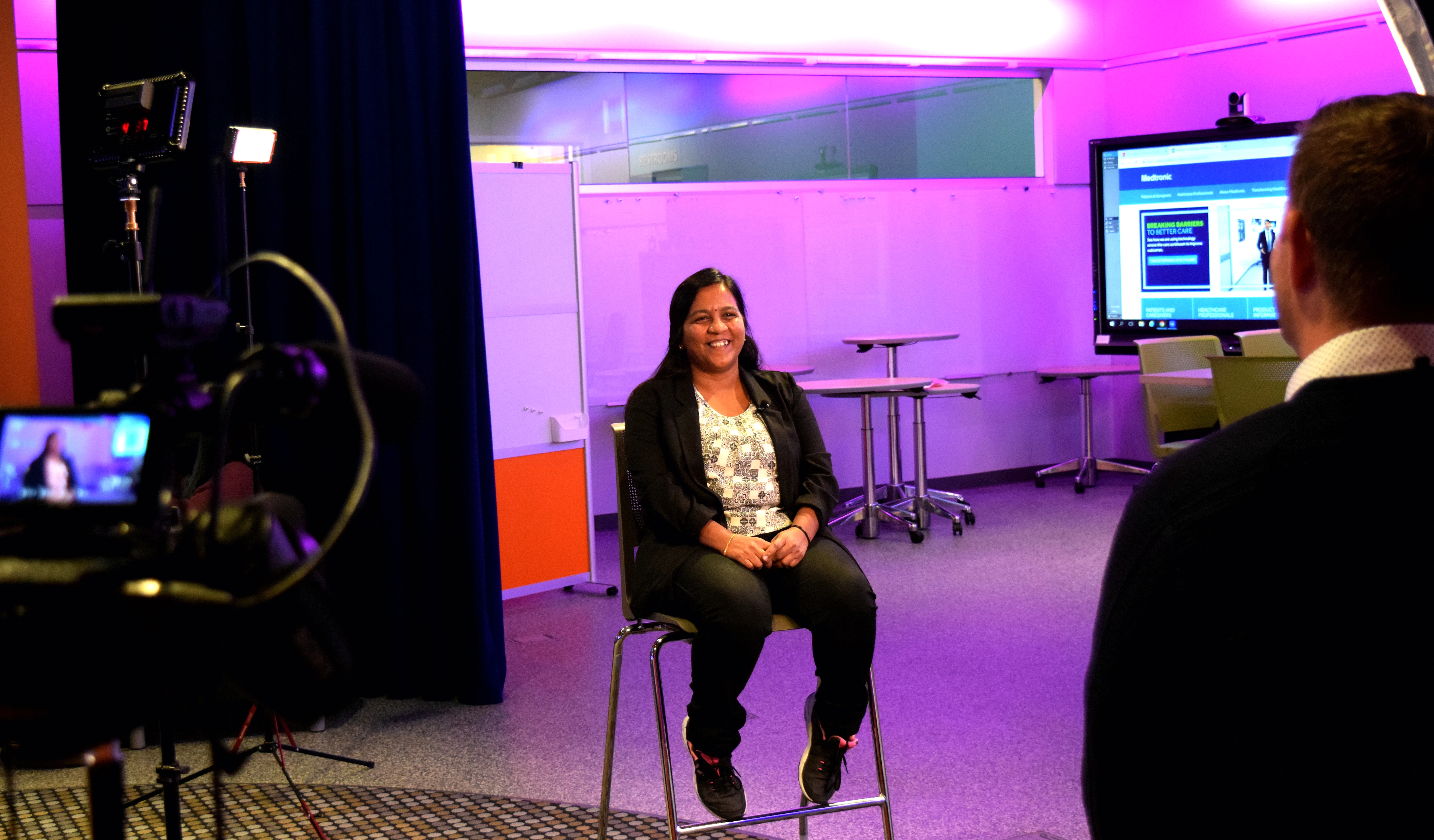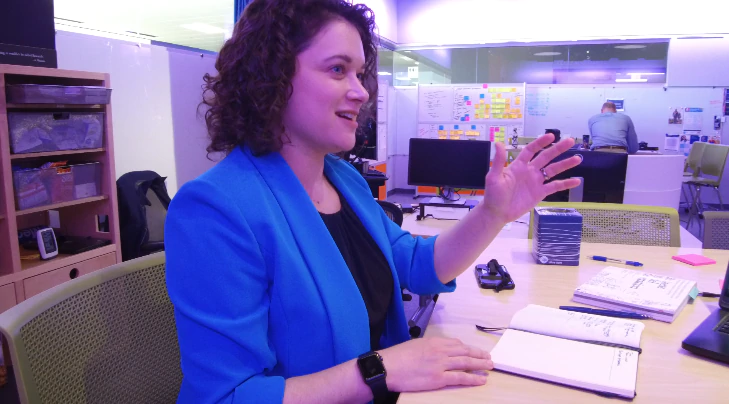Women in I.T: Providing Diversity, Looking to the Future
Dawn Bardot and others across the company’s information technology group are helping transform the future of healthcare.
To most, it’s an antique computer. But to Dawn Bardot, the Commodore 64 brings back special childhood memories.
“I would write and play programs,” she recalls. “While other kids were making flashcards, I was programming spelling words into the system and testing myself.”
These were the days of 8-bit home computers, BASIC operating systems, and using old television sets as computer monitors.
“Those are good memories,” laughs Dawn. “But I could tell from a young age that I liked to create.”
Those early years were a catalyst to what she does at Medtronic—and why. Today, Bardot is the Director of Healthcare Innovation within the information technology (I.T.) function.
Experience and Empathy
Writing code as a third grader was just the start. That desire to create, fix things, and solve problems never left. Bardot went on to receive multiple degrees in mechanical engineering including a fellowship in innovation from the University of Minnesota. She’s studied everything from solar loads on cars and the ergonomics of chairs to NASA space stations and the insulation properties of sleeping bags.
“As an engineer, you understand, not only how to tackle a problem, but how to iterate new versions, too,” she says.
Bardot says that mentality carried into the next phase of her career: a focus on healthcare and digital evidence.
I get to look at issues that face the healthcare system and find digital solutions. But it starts with truly listening to the needs of patients and physicians.
Dawn Bardot Director of Healthcare Innovation Medtronic I.T.
“I get to look at issues that face the healthcare system and find digital solutions,” she says. “But it starts with truly listening to the needs of patients and physicians.”
In her role at Medtronic, her team is integrating design thinking frameworks, extended reality, software as a medical device, and other emerging technologies that will make an impact on the future of healthcare. One project, focused on reducing the risk of hypertension in pregnant women in Africa, uses human design-based mobile apps designed by Bardot and her team.
“When we think of I.T., we often think of bits and bytes,” says Bardot. “But there’s a huge empathy component to IT. We have to think of the end user.”
A Woman in I.T.
Medtronic is committed to a powerfully inclusive and diverse culture – especially in male-dominated fields. In 2018, women represented 54 percent of the company’s new hires around the world. Among its global leaders, 37 percent are women. Medtronic supports Employee Resource Groups, which strengthen ties between employees and many of the different backgrounds and interests within the company.
The company has a Women in I.T. (WIIT) employee resource group dedicated to support, career development, and networking. It's part of a broader Medtronic Women's Network that has 14,000 members worldwide, with local hubs spanning 65 countries. Groups like Women in Science and Engineering and programs like Careers 2.0 also help support women on their career paths at the company.
"There are lots of opportunities for women to develop themselves at Medtronic," says Ganga Sivaramasubramanian, a senior I.T. manager in India
“Different perspectives are respected,” says Sarah Nieters, Vice President of I.T. within the company’s Restorative Therapies Group. Nieters is also the executive director of the WIIT Network.
“When tackling a problem, it’s essential to have different perspectives,” says Nieters. “And that’s important when looking at things like digital health, new technologies, and the future of healthcare.”
Through all her experiences, Bardot sees something different at Medtronic.
“This company is a supportive environment,” says Bardot. “I’m working with some of the most technically talented women I’ve ever been with — and it’s very fun.”
She looks back on her time tinkering with a Commodore 64 and calls it “critical experience”. She strives to provide similar opportunities for young girls to imagine — and create. She volunteers with high school robotics teams and is a mentor for student designers at the University of Minnesota.
“We still have a long way to go,” says Bardot. “But it’s important to me to help highlight any disparities I see, think about ways to be as inclusive as possible, and encourage the next generation.”

